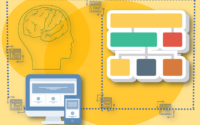
African American Males Learning Online: Promoting Academic Achievement in Higher Education
Online education is expanding within higher education. However, attrition rates for African American males enrolled in higher education in general, and in online courses specifically, is on the rise. Because the future of our nation depends on how well our educational institutions develop, nurture, and deploy talent, an investigation was conducted to identify factors that […]















